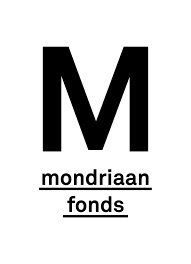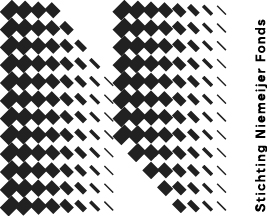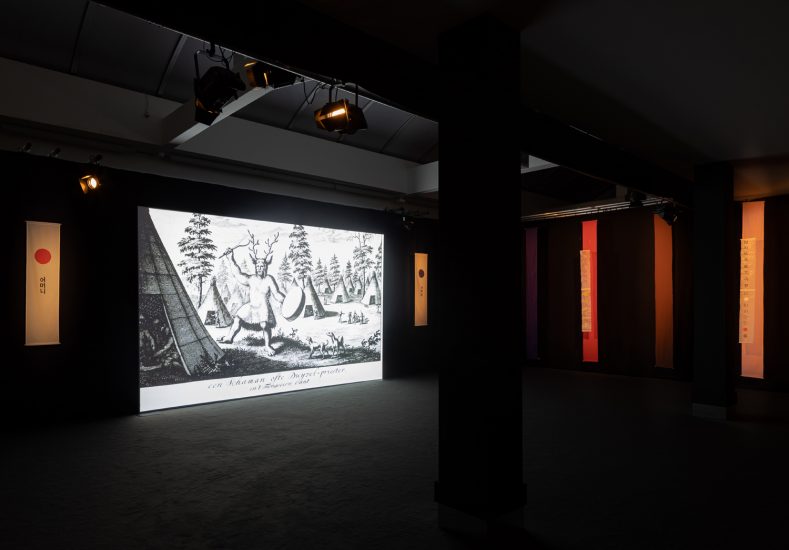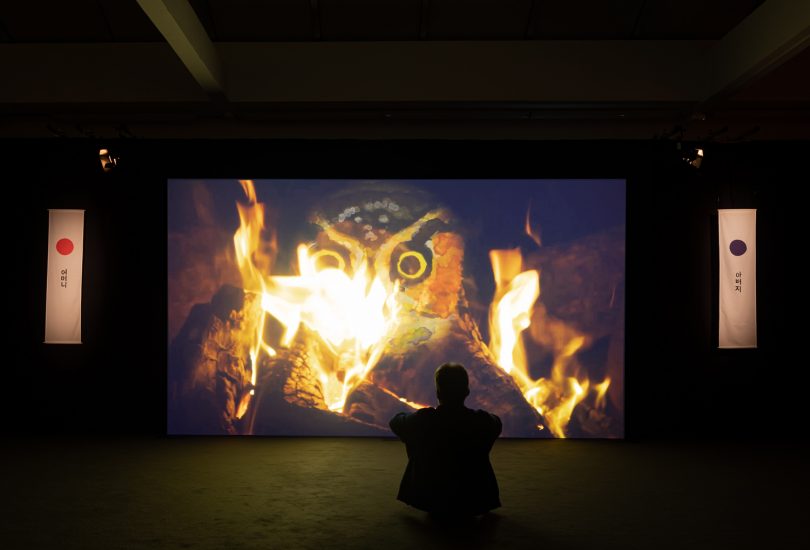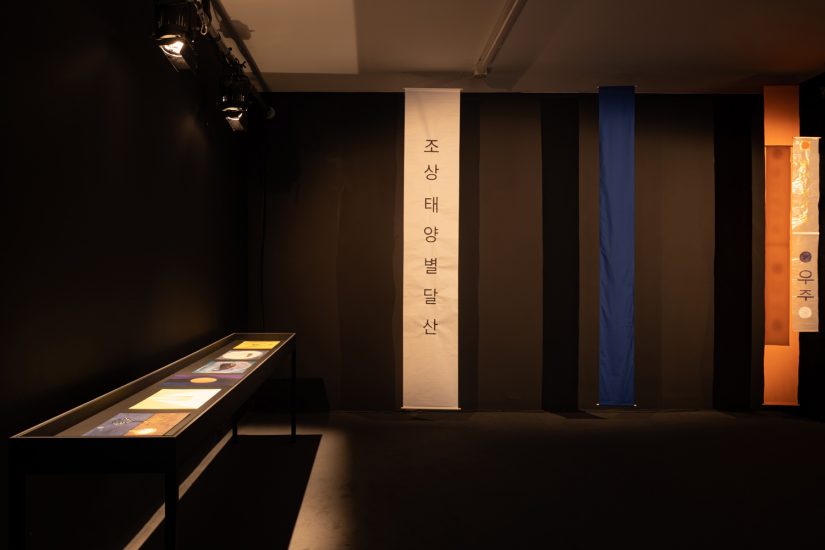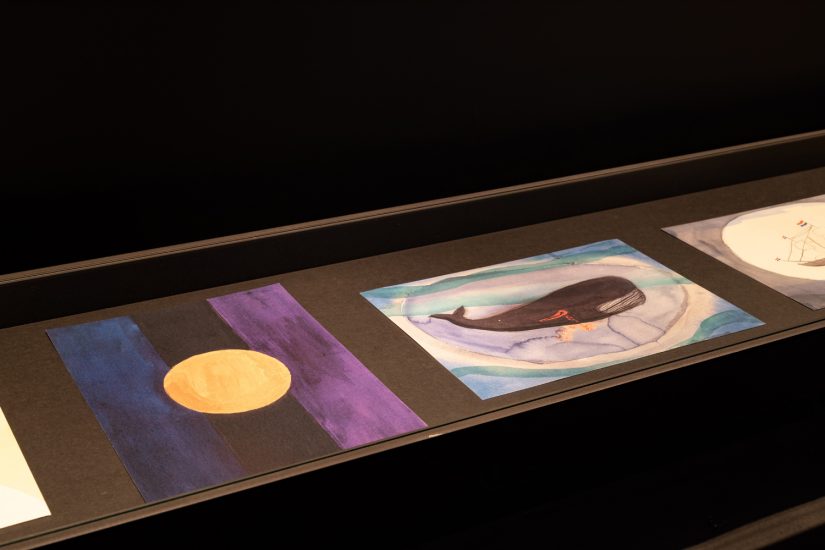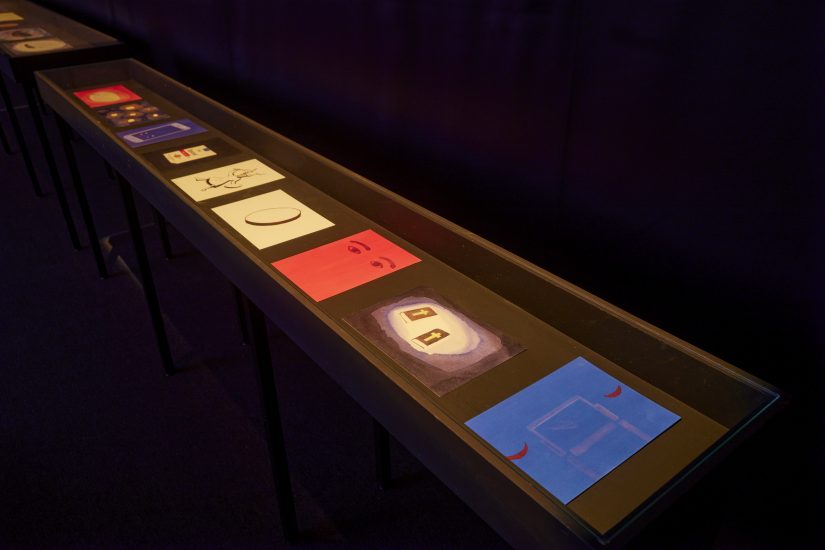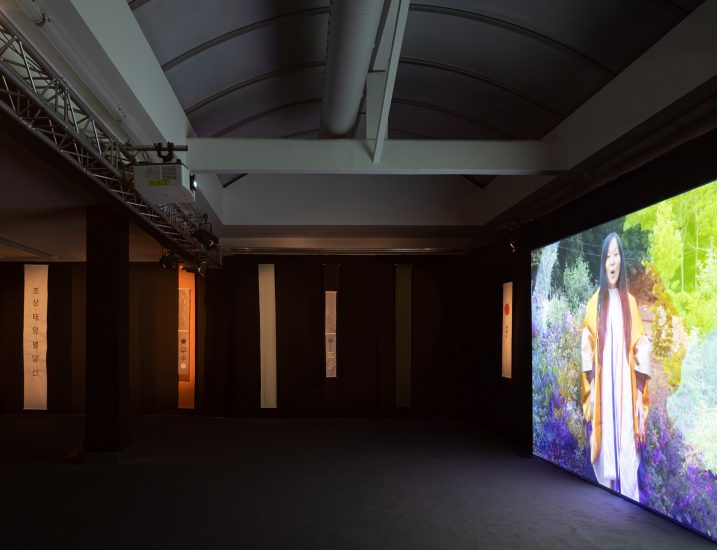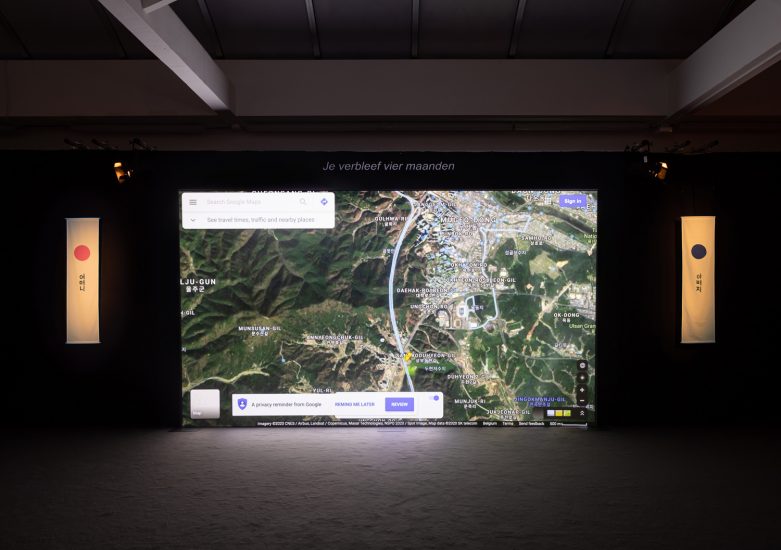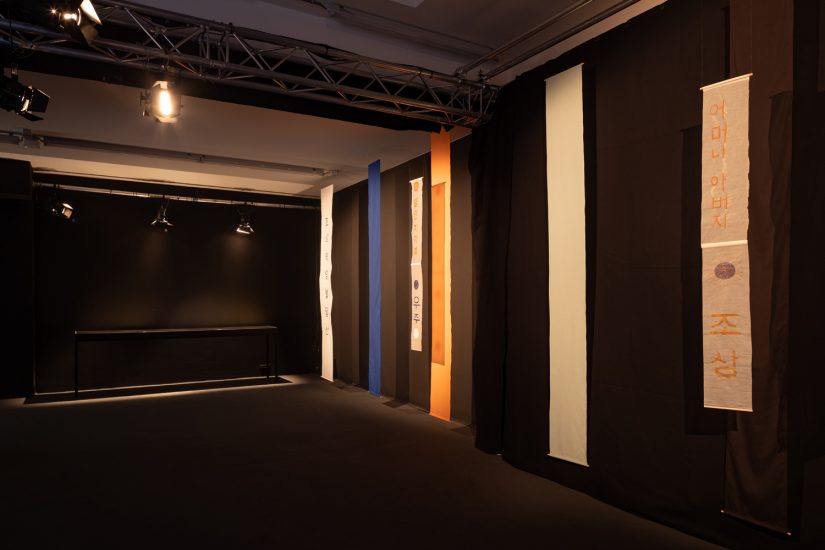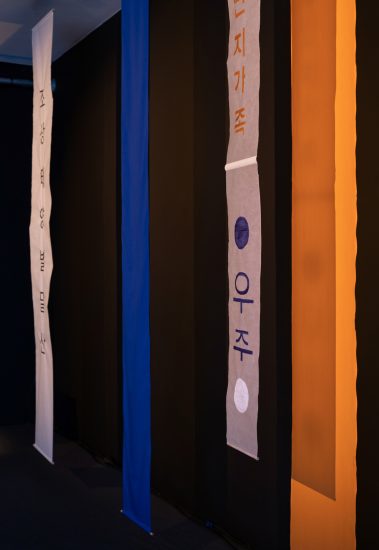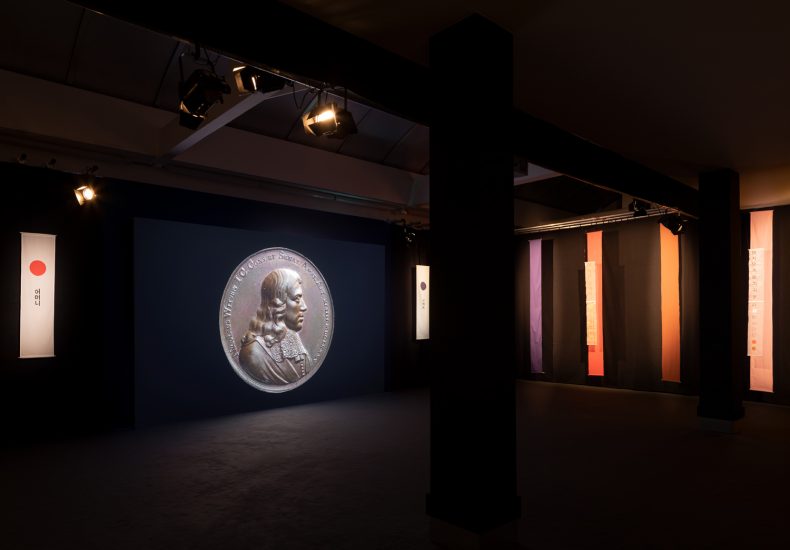Sara Sejin Chang (Sara van der Heide)
Four Months, Four Million Light Years
“Sit with me. In a sea of light, you will be born. The stars are your brothers and sisters. They travel with you. You are never alone. Even when you think you’re alone. We are with you. Always.”
On the basis of the historical relationship between the Netherlands and Korea, Four Months, Four Million Light Years (2020) by Sara Sejin Chang (Sara van der Heide) explores the false myths and notions that enabled, and still enable, the ‘uprooting’ and relocation of children from the Global South. The work unravels the colonial background of the contemporary transnational and transracial adoption industry and can simultaneously be experienced as a shamanic and healing journey through time and space.
The exhibition time-travels from contemporary Dutch society and the participation of thousands of Dutch soldiers in the deadly Korean War (1950–1953) to early Dutch colonial descriptions of Asian people and cultures. The colonial print Een Schaman ofte Duyvel-Priester (1692), by Dutch V.O.C. director Nicolaes Witsen plays a crucial role in the film. It is the first Western depiction of a shaman and set the tone for a centuries-long history of racialized and infantilizing descriptions of Asian people. The print marks the beginning of the development of colonial imagery, which was accompanied by the violent eradication of shamanic cultures by Christian missionaries, Western interference in the Korean War, which claimed the lives of millions of Koreans, and the related emergence of the large-scale transracial adoption industry.
In the Netherlands alone around 40,000 people have been adopted from the Global South, often through child trafficking and with falsified documents. For decades, signs have been ignored that children have been taken from their parents without consent and trafficked into Europe and the United States by adoption agencies with forged identities to meet the high demand for children in the West.[1] The title Four Months, Four Million Light Years refers to the Korean law that required a minimum stay of four months in a Korean orphanage before a child was legally ‘adoptable’ to the lucrative adoption industry.
Reminiscent of a shamanic temple, the installation brings together historical and psychological research and various film genres. Self-created music and songs, visual and shamanic poems flow together with watercolors of visions, collective experiences, and documentary fragments. As in a shamanic healing journey, linearity is dissolved. Through the rhythm of the drum and projected visions, the visitor falls into a trance and into an ‘ancestral healing zone’. In addition to the film, the installation consists of drawings, textiles, and hand-painted text banners. The film is not only about those who have undergone adoption, but also addresses those who have perpetuated the system of child trafficking and child theft.
Four Months, Four Million Light Years invokes the ancestral connection and is a tribute to all who have been separated from their mothers, fathers, family, ancestors, country, culture, and spirits. It comes as a follow-up to Chang’s ongoing project The Mother Mountain Institute (2017-ongoing), which collects and brings forward the testimonies of mothers from the Global South whose children have been trafficked for transnational adoption.
Click here for Sara Sejin Chang (Sara van der Heide): Healing Colonial Adoption Narratives, an interview with Sara by Karima Boudou.
In the Centraal Museum in Utrecht Chang’s film Brussels, 2016 (2017) will be on view from February 11th to June 4th.
Recent solo exhibitions by Sara Sejin Chang (Sara van der Heide) (1977, Korea) include Four Months, Four Million Light Years at Moderna Museet Stockholm (currently running), ARGOS centre for audiovisual arts, Brussels, (2021) and The Mother Mountain Institute (CASCO Art Institute, Utrecht, 2021). She has participated in the Busan Biennale, Busan (2022), 11th Berlin Biennale (2020), the 5th Dhaka Art Summit (2020), Sharjah Biennal 13, Beirut; and Contour Biennale, Mechelen (2019).
Read an essay about the exhibition by Mara Lee that was commissioned by ROZENSTRAAT here!
Mara Lee (South Korea, 1972 is a Swedish poet, novelist and scholar. Her most recent publication is the poetry collection Kärleken och hatete /Love and the Hate, 2018) in which poetic, narrative, and essayistic language conjoin. Lee is currently employed by the Royal Institute of Art in Stockholm where she is working on a research project on affect, intimacy and processes of othering.
Press:
De Volkskrant, ‘Een kunstwerk als een sjamanistische reis’ by Sarah van Binsbergen, January 19 2023
Het parool, ‘Installatiekunst over Koreaanse adoptiekinderen zet discussie op scherp’ by Kees Keijer, February 1 2023
De Groene Amsterdammer, ‘Koekoekslied’, by Joke de Wolf, March 15 2023
[1] Following the release of a damning report on transnational adoptions, and the systematic abuse, child trafficking and fraud associated with them, the Dutch government decided to end transnational adoptions in early 2021. Following the report, the Rutte IV administration apologized for the abuses of people with adoption histories. However, under pressure from the adoption lobby, Minister for Legal Protection Franc Weerwind announced in late November 2022 that foreign adoptions will nevertheless be restarted from 2023. Child and human rights organizations reacted indignantly to this, believing that the decision was not primarily based on the best interests of adopted people. Shortly thereafter, the South Korean government announced it will begin investigating the files of dozens of people adopted in 1960s to 1990s, including some Dutch cases, for illegal parental practices and other abuses.
Technique:
MTS Audiovisueel, Amsterdam
This is exhibition is supported by:
![]()
